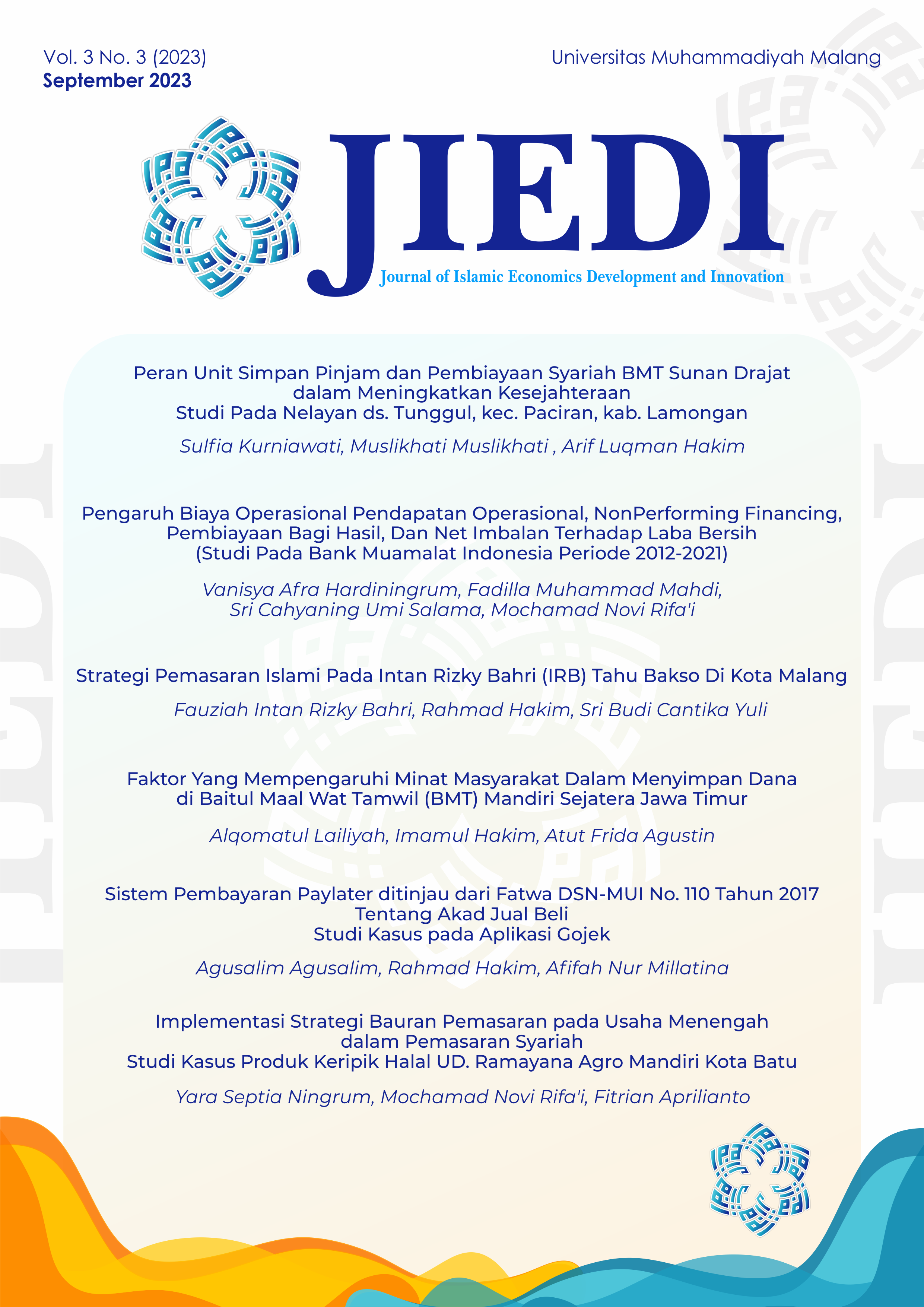Peran Unit Simpan Pinjam dan Pembiayaan Syariah BMT Sunan Drajat dalam Meningkatkan Kesejahteraan
Studi Pada Nelayan ds. Tunggul, kec. Paciran, kab. Lamongan
Keywords:
cooperatives, financing, fishermen's welfare, potentialAbstract
This study aims to determine the role of the Savings and Loans and Sharia Financing Unit (USPPS) of BMT Sunan Drajat in improving the welfare of fishermen in Tunggul Village, Paciran Lamongan District. in this study using qualitative methods with a case study approach. sources of data obtained through primary data and secondary data, for data collection using observation, interviews, documentation, and literacy sources. Data analysis techniques use data collection, data condensation, data display, and drawing conclusions, to check the validity of the data using source triangulation techniques, theory and time techniques. The results of this study indicate that the role of USPPS BMT Sunan Drajat has three roles from Soemitra's theory: (1) BMT contributes to providing capital for MSMEs. In the provision of capital funds, there are various types of financing agreements, including: Working Capital (Mudharabah), Sale and Purchase (Murabahah), Pawn (Rahn), and Qardh; (2) Releasing dependence on moneylenders to avoid elements of usury; (3) Maintain social economic justice with equity. Equal distribution of income for various types of fishermen and fishermen's catches.
Downloads
Downloads
Published
How to Cite
Issue
Section
License
Copyright (c) 2023 Sulfia Kurniawati, Muslikhati Muslikhati , Arif Luqman Hakim

This work is licensed under a Creative Commons Attribution-NonCommercial 4.0 International License.






